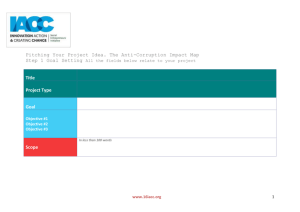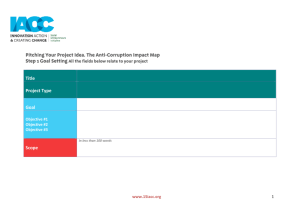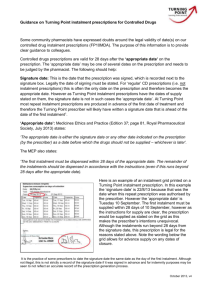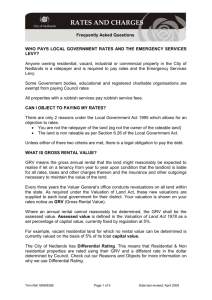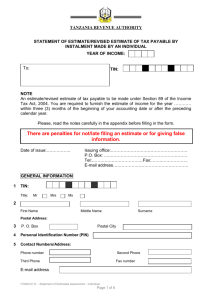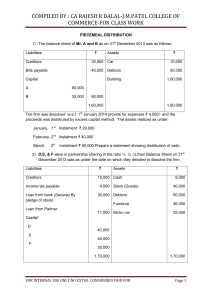Corporation Tax Installment Payment Guide
advertisement
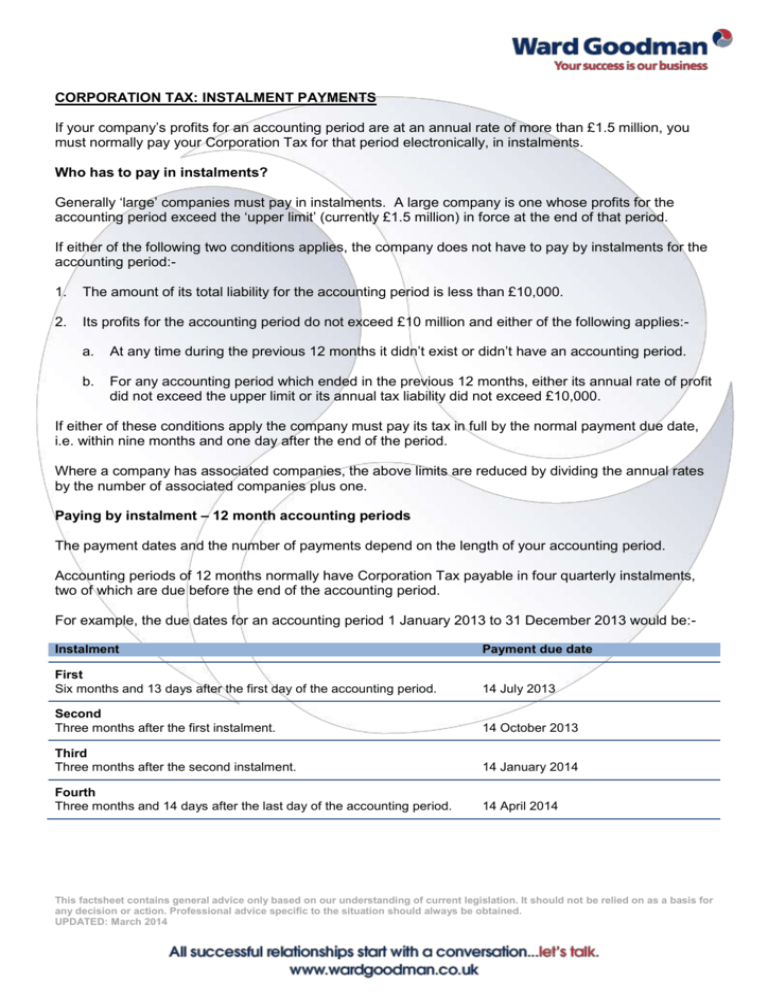
CORPORATION TAX: INSTALMENT PAYMENTS If your company’s profits for an accounting period are at an annual rate of more than £1.5 million, you must normally pay your Corporation Tax for that period electronically, in instalments. Who has to pay in instalments? Generally ‘large’ companies must pay in instalments. A large company is one whose profits for the accounting period exceed the ‘upper limit’ (currently £1.5 million) in force at the end of that period. If either of the following two conditions applies, the company does not have to pay by instalments for the accounting period:1. The amount of its total liability for the accounting period is less than £10,000. 2. Its profits for the accounting period do not exceed £10 million and either of the following applies:a. At any time during the previous 12 months it didn’t exist or didn’t have an accounting period. b. For any accounting period which ended in the previous 12 months, either its annual rate of profit did not exceed the upper limit or its annual tax liability did not exceed £10,000. If either of these conditions apply the company must pay its tax in full by the normal payment due date, i.e. within nine months and one day after the end of the period. Where a company has associated companies, the above limits are reduced by dividing the annual rates by the number of associated companies plus one. Paying by instalment – 12 month accounting periods The payment dates and the number of payments depend on the length of your accounting period. Accounting periods of 12 months normally have Corporation Tax payable in four quarterly instalments, two of which are due before the end of the accounting period. For example, the due dates for an accounting period 1 January 2013 to 31 December 2013 would be:Instalment Payment due date First Six months and 13 days after the first day of the accounting period. 14 July 2013 Second Three months after the first instalment. 14 October 2013 Third Three months after the second instalment. 14 January 2014 Fourth Three months and 14 days after the last day of the accounting period. 14 April 2014 This factsheet contains general advice only based on our understanding of current legislation. It should not be relied on as a basis for any decision or action. Professional advice specific to the situation should always be obtained. UPDATED: March 2014 CORPORATION TAX: INSTALMENT PAYMENTS Paying by instalment – accounting periods shorter than 12 months If the company has an accounting period shorter than 12 months, the last instalment will be due three months and 14 days after the last day of the accounting period. If the accounting period is longer than three months, the first payment will be due six months and 13 days after the first day of the accounting period. If the period is long enough, other payments will also be due at three-monthly intervals thereafter. For example, the due dates for an accounting period 1 January 2013 to 31 August 2013 would be: Instalment Payment due date First Six months and 13 days after the first day of the accounting period. 14 July 2013 Second Three months after the first instalment. 14 October 2013 Third Three months and 14 days after the last day of the accounting period. 14 December 2013 Calculating instalment payments 1. Estimate the total Corporation Tax liability for the accounting period. 2. Calculate the amount of each instalment. For a 12 month accounting period the total liability is paid in four equal instalments. For accounting periods of three months or less, one single payment is made. For periods longer than three months but less than 12 all instalments except the last will be: 3 x the company’s total liability ÷ the number of months in the period The last instalment is the company’s total liability less the payments made so far. 3. If the estimate changes during the course of the accounting period, each instalment will need to be recalculated based on the revised figure. With a higher liability, top-up payments will need to be made to cover the shortfall on previous instalments (late payment interest will be charged on the additional tax due). A lower liability will result in an overpayment, which can either be reclaimed or left on account to be deducted from future instalments. This factsheet contains general advice only based on our understanding of current legislation. It should not be relied on as a basis for any decision or action. Professional advice specific to the situation should always be obtained. UPDATED: March 2014
